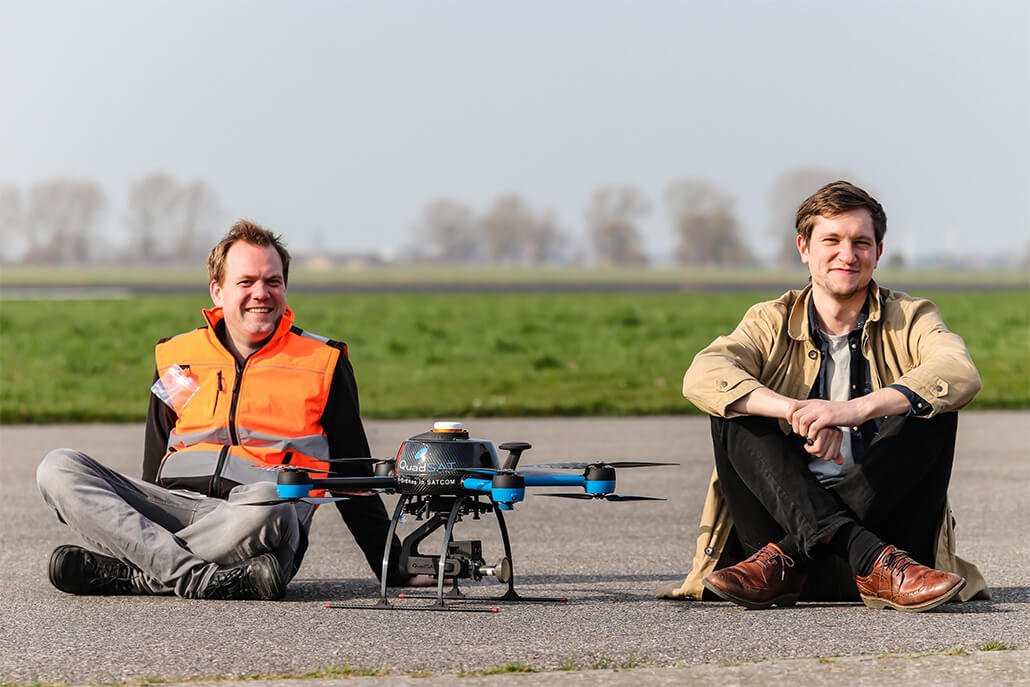Danish drone company QuadSAT has raised €2 million in 'pre-Series A' funding to develop its testing solutions for satellite communications. The round was led by Seraphim Capital, a venture fund dedicated to space tech, Vaekstfonden, the Danish state’s investment fund, and angel investor Helge Munk.
With the likes of Amazon (Kuiper), SpaceX (Starlink) and OneWeb (recently bought by the British government) launching more and more satellites into orbit in hopes of global connectivity, there’s actually a growing disconnect between satellites and ground control.
Satellites have antennas to access the radio spectrum. The growing number of orbiting satellites is amplifying the amount of radio frequency interference (RF), which could eventually drown out crucial radio signals and disrupt service. The main source of the interference? “Poorly performing and inaccurate ground antennas,” says the Danish startup. These antennas must be regularly tested and maintained, which means the world needs an antenna testing mechanism that is cost-effective, quick and scalable. That’s what QuadSAT has set out to provide. “Our solution is the only one that can provide the scalability of test and measurements required for a robust satcom infrastructure to minimize challenges such as dropped calls and internet buffering,” claims CEO and co-founder Joakim Espeland. The software is a combination of drone and RF technologies, which makes automated antenna testing and measurement available anytime and anywhere. Based in Odense, the startup raised £700,000 about two years ago and recently completed contracts with the European Space Agency to continue developing other satcom products. CTO and co-founder Andrian Buchi elaborates: “We see a high level of interest for our technology, not only in antenna measurements but also in other test solutions aimed specifically at higher frequencies and at the future mass deployment of mega-constellations.” For now, the latest funding will be used to transition QuadSAT’s existing product, currently offered as a service, to be sold as a product for third party users. This will also allow the team to expand its UK research and development activities, as it prepares to raise a Series A round within the next year.
Photo: Co-founders Joakim Espeland and Andrian Buchi



Would you like to write the first comment?
Login to post comments